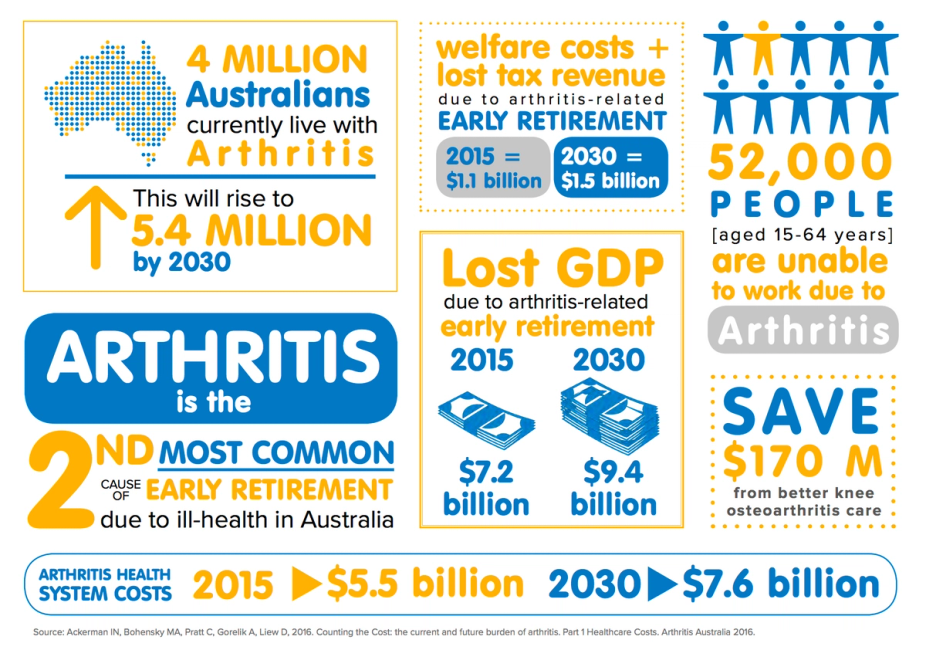question
what costs are involved in treating and managing arthritis?
Managing arthritis involves various costs, which can differ based on whether you choose public or private healthcare options. Here’s a breakdown of the potential expenses involved in treating and managing arthritis, based on the information in my sources.
Public Healthcare System
- Referral Costs: If your GP refers you to a health professional as part of a care plan, you may be eligible for five funded sessions per year through Medicare.
- Access to Services: Most health professionals are available in the public health system, such as community health centres or public hospitals.
- Cost: Services in the public system are usually free or low-cost, but there may be waiting lists for appointments.
Private Healthcare System
- Consultation Fees: You can consult health professionals at private clinics without needing a referral from your GP.
- Cost Range: Private consultations can vary significantly, typically costing between
30 to100, depending on the type of health professional. - Insurance Coverage: Some of these costs may be partially covered by private health insurance, so it’s worth checking your policy.
Types of Health Professionals and Their Roles
- General Practitioner (GP): Your first point of contact for any concerns about your arthritis. They can coordinate your overall healthcare and refer you to specialists if needed.
- Rheumatologist: A specialist in joint, muscle, and bone disorders. Referral may be necessary if your symptoms are unclear or require specialist care.
- Physiotherapists and Exercise Physiologists: They can provide tailored exercise programs to help manage pain and improve mobility.
- Occupational Therapists: They assist with daily living activities and recommend aids to make tasks easier.
- Dietitians: They offer advice on nutrition and weight management, which can be crucial for arthritis management.
- Psychologists: They can help you develop coping strategies for pain and emotional challenges associated with arthritis.
Additional Costs
- Medications: Both prescription and over-the-counter medications play a vital role in managing arthritis pain and inflammation. The costs can vary widely based on the type of medication and whether you have insurance coverage.
- Therapies: Some individuals may choose complementary therapies such as massage, acupuncture, or TENS (Transcutaneous Electrical Nerve Stimulation). While these can provide relief, they may not be covered by Medicare or private health insurance.
- Assistive Devices: Depending on your needs, you may require aids or equipment to assist with daily activities, which can add to your overall costs.
Preparing for Appointments
To maximise the benefits of your healthcare visits, consider the following:
- Write Down Questions: Prepare a list of questions to ask your healthcare provider.
- Bring Relevant Documents: Always take any x-rays or test results related to your condition.
- Consider a Support Person: Bringing a family member or friend can help you remember important information discussed during the appointment.
Conclusion
Managing arthritis can involve various costs, from consultations and medications to therapies and assistive devices. It’s essential to discuss your options with your GP and explore both public and private healthcare avenues to find the best fit for your needs and budget.
If you have further questions or need more specific information, I encourage you to consult a healthcare professional who can provide tailored advice based on your situation.
This information is not a substitute for professional medical advice, diagnosis or treatment. Always consult a registered healthcare professional about matters that affect your health. Clara uses artificial intelligence to generate general information for personal educational purposes only, not intended to be a management plan and it may contain errors, inaccuracies or may oversimplify concepts.










